Fashion

Remix, Food Waste Biomaterial Makers
FabLab (ES)
The Starts Prize-nominated project for innovative collaboration is inviting you to a four hour-long biomaterials workshop at Fab Lab Barcelona. An emerging development in the field of industrial design, fashion and art is the creation of biobased materials, biofabricated in laboratories from microorganisms, bacteria and biopolymers.
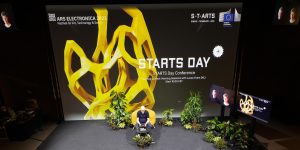
STARTS Day: Afternoon Session
Anastasia Pistofidou (GR), Marion Real (FR), Lucas Evers (NL), Michela Magas ( UK/SE/HR), Areti Markopoulou (GR), Karin Fleck (AT), Silke Hofmann (DE), Sophia Guggenberger (AT), Eugenia Morpurgo (IT), Filippo Nassetti (IT), Vincenzo Reale (IT), Malou Beemer (NL), Anke Loh (DE), Sandra Nicoline Nielsen (DK), Tim van der Loo (NL), Loreto Binvignat Streeter (CL/ES), Alexander Bello (BE/MX/US/CA)
STARTS Talk: In Conversation with Anastasia Pistofidou & Marion Real; Fabrication Deep Dive: On the future of sustainable manufacturing; MADE IN YOUR CITY A NEW VALUE CHAIN FOR FASHION
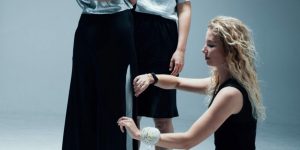
Second Skin
Malou Beemer (NL)
Malou Beemer reshapes the relation between us and our clothes by integrating body language and non-verbal behaviour into the design process, making fashion design more interactive and responsive.
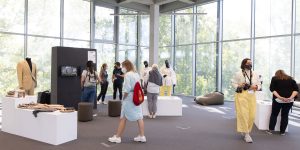
Re-THINK FASHION
Re-FREAM CONSORTIUM (INT)
The Re-FREAM Garden shows collaborative research projects where selected artists and designers teamed up with a community of scientists and technologists to rethink the manufacturing process of the fashion industry.
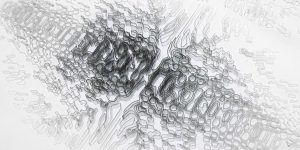
MADE IN YOUR CITY
ReFREAM Consortium (INT)
Re-FREAM´s vision is to make fashion production, processes and materials more sustainable and inclusive, and to manufacture them in urban settings. In this panel, international artists, designers and experts discuss their perspectives on future options for clothing production. They share their experiences with inclusive development processes, new sustainable material and encountered chances of urban manufacturing.
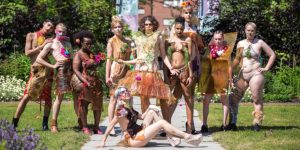
Organic fashion: Chemistry and LHBTQ+
Iza Awad (NL)
In a world of rapid consumption, we constantly deplete natural resources to deliver new fashion trends. Iza Awad, a master’s student in chemistry, a joint degree of the Vrije Universiteit Amsterdam and University of Amsterdam, tackled this issue in his research project by producing fabrics from cellulose material that constantly grows in kombucha, a fermented tea drink. Awad also showed that the biopolymer is especially well suited to contain living plants and other photosynthetic organisms.

Department of Fashion & Technology
LOOPS OF WISDOM Exhibition, Kunstuniversität Linz
Humans’ desire to express through colour dates to prehistoric times. Colours serve as a means of communication and expression, directly triggering feelings of relaxation, as well as tense and intense emotions. An unconscious use of colours and dyes, however, harms the environment tremendously and can be seen in rivers that shimmer in all imaginable colours. Toxic and polluted, they destroy the habitat of living creatures that depend on clean water. But not all coloured waters result from this devastating use.

Growing Colors
Sabine Hild (AT), Institute of Polymer Science JKU; Julia Moser (AT), Fashion & Technology, University for Art and Industrial Design Linz; Patrik Radić (AT), Microbiology TU Graz; Laura Holzinger (AT), Chemistry and Chemical Technology JKU
There are qualities to bacteria that we may not be able to experience through our senses only. Our project makes visible the hidden colors of bacteria in our immediate environment. It shows their potential in the dyeing process for textiles, to make the world not merely more colorful — more blue, or yellow, or red—but also “greener“ and more sustainable.

